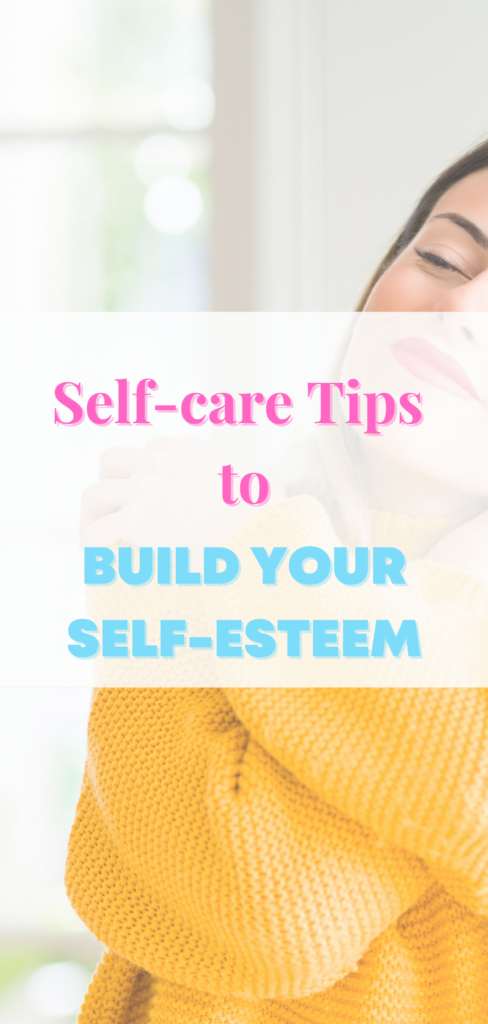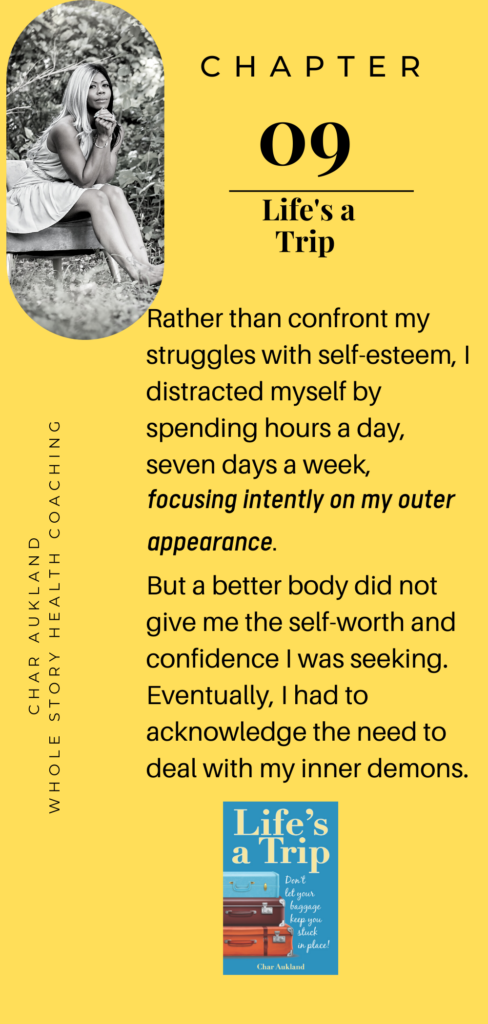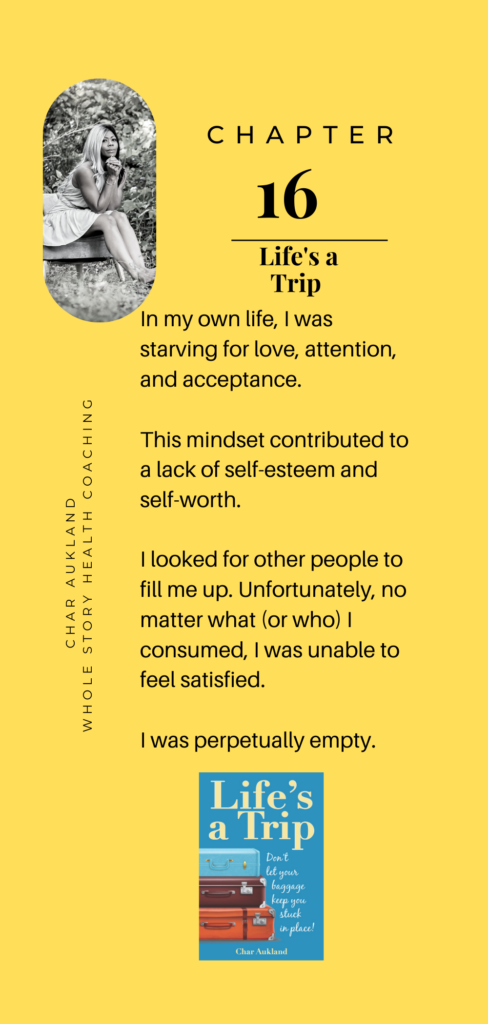Self-esteem and self-care go hand in hand. In fact, the more we love ourselves, the more likely we are to care for our whole health experience.
Each of us has our own concept of what it means to esteem ourselves. Depending on who you ask, it can be about:
- thinking highly of ourselves
- appreciating our bodies
- accepting our flaws
- loving ourselves
- feeling beautiful…no matter what
- recognizing our capabilities
The list goes on.
And while those things are all a part of self-esteem—it also extends into recognizing and understanding our worth and pricelessness.
Self-care is the demonstration of that understanding.
Self-Care and Self-Neglect
When we are not intentionally caring for ourselves, we are moving toward (unintentional) self-neglect.
Self-care is a conscious decision to do something that will add value to one of the four pillars of our health. Self-neglect comes into play when we go through life on autopilot — not paying attention to our needs.
Self-care and self-neglect look different for each of us. It might be:
- what we’re eating
- how we are allowing ourselves to think
- what we consume mentally, emotionally, and spiritually
- the people we let get close to us
- not actively caring for our physical health: movement, sleep, food choices, doctor’s visits, etc.
Keep in mind: when we neglect our mental, emotional, physical, or spiritual health, there will be consequences.
Self-Esteem and Knowing Your Worth
On way too many occasions, I hear people communicate just how little they think of themselves. I have also been guilty of this.
As someone who suffered with low self-esteem and a 24-hour inner critic, I get it.
Sometimes, discounting our worth becomes a habit. Though we don’t recognize it, it becomes common for us to:
- call ourselves names
- doubt ourselves
- devalue our self-worth
- allow toxicity into our lives
- accept mistreatment
- treat ourselves poorly
Valuing ourselves is more than a thought. It is an act—and a powerful way to show that we recognize our self-worth—to ourselves and others.
Sadly, when I undervalued myself, I allowed others to do it too. In fact, I looked to other people’s acceptance as proof of my value.
My Cornerstones of Self-Care
I like to approach self-care from several areas: spiritually, mentally, emotionally, and physically. When we take a whole-self approach, our self-care routine:
- deepens our relationship with ourselves
- increases our recognition of our worth
- communicates our self-love to ourselves and others
The following examples are how I approach each pillar. As you read through them, start brainstorming how you can improve each area in your own life.
Make sure to consider how each pillar can add value to your foundation of self-esteem.

Spiritual
Writing bible studies, singing along to praise and worship music, and talking to God have become an indispensable part of my self-care routine.
Whether in the dark peacefulness of the morning, or throughout the day , it’s a must for me. The calmness my spirit feels, and the joy are indescribable.
But, there was a time when my spiritual health was on the back burner – and the stove was off. I was spiritually, mentally, and emotionally chaotic. Sometimes I felt like a shell of a person.
Because I don’t want to go back to that type of wilderness, I make sure that my spirit is cared for each day.
Value Added
In addition to strengthening my relationship with God, my spiritual self-care routine has other amazing effects:
- lessens my anxiety
- improves my mood
- helps with patience
As someone who struggled with overthinking and emotional chaos, these are huge bonuses.
I also get to recognize which things, circumstances, or people disrupt my peace and self-esteem.
This knowledge helps me to know which areas of my life need to be decluttered.
Mental
This area of my routine is to make sure that I check in with my mental health, more specifically, the quality and content of my thoughts.
Rather than existing on thinking autopilot, I do the following…
- Monitor my thoughts for thinking errors
- Take thoughts captive (instead of being held in captivity by them)
- Evaluate them for content and quality
These are a necessity for me. And it hasn’t been easy.
Value Added
Like I mentioned, I was a chronic overthinker, who suffered from what I referred to as thought tornadoes.
Before I knew it, my thoughts and emotions were spiraling out of control—constantly.
Identifying thinking patterns that are not serving me helps to preserve my relationship with myself and others.
Emotional
For me, it’s important to tie this area into my mental and spiritual self-care.
Praying, learning to be mindful (especially of how my thoughts are influencing me), grounding techniques, and meditation are all parts of my emotional regulation toolbox.
I have put a lot of time and effort into being able to finally step off my emotional rollercoaster:
- prayer
- therapy
- books
- willingness to put in the work
And it has paid dividends.
Although there are times when I end up back on the ride, it’s not the everyday, all day event it used to be.
Value Added
My emotional rollercoaster rides and out-of-control behaviors only further destroyed my self-esteem and added to my shame.
Learning to regulate my emotions has saved me a lot of embarrassment. It has also kept me from getting too close to the kinds of people and situations that are toxic to me.
As most of us know, keeping the wrong people around us can destroy us from the inside out—leaving our sense of worth in a pile on the floor.
Physical
Our physical health, like stress levels, anxiety, depression, high blood sugar, and high blood pressure are all either helped or hurt by the ways in which we take care of ourselves —or neglect ourselves.
But, I don’t just mean the typical concept of being physically fit.
Although I love to exercise, caring for myself physically has become more about:
- sunshine
- fresh air
- water
- deep breathing
- nourishing foods
- spending time in nature
Value Added
Physically, my self-care goals are tied into my overall sense of well-being.
I love taking the time to get outside, observe my surroundings, and just appreciate the life, health, and strength that I have—especially after COVID has changed so much.
Not only does the movement increase my happy chemicals (dopamine and serotonin), but so does the gratitude that I feel for being able to enjoy my blessings.
Your Daily Self-Esteem Self-Care Routine
Self-care doesn’t have to be complicated —for example:
- waiting at a stoplight is the perfect opportunity to take some deep calming breaths.
- parking at the end of the lot is a quick physical value add
- calling out and defusing negative disruptive thoughts, instead of listening to them and spiraling trains our brains towards peace
Brainstorm each of the areas and write out some ideas that work for your lifestyle.
Consider the time you will spend on each value adding activity and how to integrate even small amounts of care throughout the day.
Whatever activities you choose, just make sure that you are choosing YOU!




